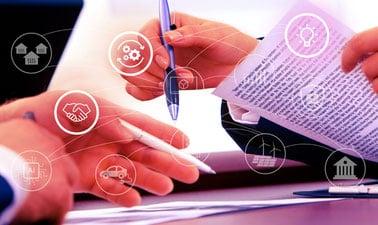MOOC List is learner-supported. When you buy through links on our site, we may earn an affiliate commission.

MOOC List is learner-supported. When you buy through links on our site, we may earn an affiliate commission.
First, you will investigate the energy supply side, namely, the providers of electricity and their markets. You will learn about the different markets and new approaches in energy trading.
You will focus on coupling within energy sectors, specifically electricity, heat, and gas. Second, you will investigate the demand side and the perspective of the sectors whose operations rely mainly on energy (including the electric mobility sector and the challenges it faces). You will conclude the course by discussing the wider framework in which these sectors work and interact together, which is represented in the paradigm of smart cities.
This course is part of the Intelligent and Integrated Energy Systems Professional Certificate.
What you'll learn
- Interpret the reasons behind the evolution of new business models in the energy landscape as well as smart cities.
- Develop an understanding of the promising technologies and trends in the energy sector.
- Understand recent innovations in energy trading, such as tokenization, peer-to-peer markets and renewables hedging.
- Identify the most effective policies to move towards a competitive, sustainable, efficient and competitive deregulated market.
- Evaluate the impact of different investment and operational scenarios and choose the best option for your organization.
- Identify promising trends and investments in energy landscapes and smart cities to develop suitable business strategies.
Syllabus
Module 1:
We review the evolution of electricity trading; past, present, future. We talk about the reasons behind market deregulation both at the wholesale and retail levels. We compare different markets and explain the choice of each market structure. We also look at some new approaches in energy trading. Finally, we bring some insights on how markets will continue to evolve in future.
• Introduction
• Energy market deregulation
• Retail energy market deregulation: tariff design and integrating renewables
• Future of electricity markets
Module 2:
We discuss the newest innovations in energy trading. We take a look at renewable energy trading and discuss risk management in this context. We discover the exciting use of tokenization to facilitate energy trading. We present the intricacies of peer-to-peer trading, a new eBay-like means of trading energy. We also review other innovations, such as flexibility trading and energy communities.
• Renewable energy trading and risk management
• Energy tokenization
• Peer-to-peer electricity trading
• Other innovations
Module 3:
We introduce the concept of sector coupling specifically in the electricity, heat and gas sectors. We discuss the reasons behind such developments and how energy transition can benefit. We focus on some of the most important and promising ideas and implementations across these sectors. Finally, we bring some insights on how sector coupling might evolve in future.
• Energy system integration
• Design of intelligent buildings
• Introduction to thermal comfort
• Smart HVAC
• Heat market design
Module 4:
We focus on the electric mobility sector, which is one of the most energy-dependent sectors. We study how to facilitate and successfully make sustainable systems for the transition from conventional fossil fuel to electric vehicles. We investigate the problem from the passengers’, manufacturers’ and electricity grid perspectives. Additionally, we present the problem in the public transport context and examine how operators can electrify their transit bus networks.
• Factors and policies affecting adoption of electric vehicles
• Business models for electric vehicles charging
• Solar electric vehicles
• Electric transit bus networks
Module 5:
We focus on more energy dependent sectors and their linkage to urban data platforms in the context of smart cities and digitalization. We first provide an overview of smart cities and the various domains within them. Afterwards, we elaborate on urban data platforms and how they can be used to innovate new business models given some examples such as digital twinning. Finally, we provide a case study from seaport operations showing how digital technologies and automation can help in realizing more sustainable operations.
• Smart cities and digitalization
• Digital twinning
• Energy management in data centers
• Smart port operations
Final Assignment:
Business model canvas.
“ Innovations for a Sustainable Business Model Canvas ”
MOOC List is learner-supported. When you buy through links on our site, we may earn an affiliate commission.
MOOC List is learner-supported. When you buy through links on our site, we may earn an affiliate commission.
